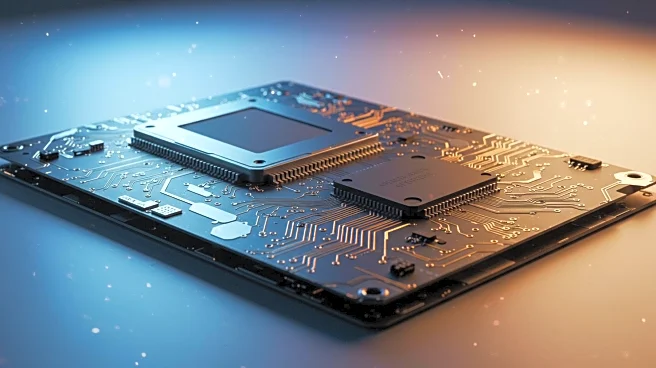What's Happening?
Senator Bernie Sanders has expressed support for President Trump's initiative to convert U.S. grants to chipmakers, including a $10.9 billion grant for Intel, into government stakes in these companies. This move is part of the 2022 CHIPS and Science Act, which aims to boost domestic semiconductor production and reduce reliance on Asian manufacturers. The act provides $39 billion in subsidies to encourage chip production in the U.S. Commerce Secretary Howard Lutnick is exploring the possibility of the government taking equity stakes in Intel and other chipmakers in exchange for these grants. This bipartisan agreement marks a shift towards state intervention in the economy, a policy typically associated with the left.
Why It's Important?
The support from Senator Sanders highlights a rare bipartisan agreement on economic intervention, which could have significant implications for the U.S. semiconductor industry. By securing government stakes in chipmakers, the U.S. aims to strengthen its technological edge over China, particularly in artificial intelligence development. This move could also ensure that taxpayers receive a return on their investment in these companies. However, the potential government involvement has caused concern among investors, as evidenced by Intel's stock drop. The initiative reflects a broader strategy to enhance national security and technological independence.
What's Next?
The Trump administration's interest in Intel is driven by the goal of increasing U.S. chip production, a key aspect of the ongoing trade war. The administration is likely to continue negotiating similar deals with other tech companies to secure government stakes. Intel is also in discussions with large investors for equity infusions, following a recent $2 billion capital injection from SoftBank Group. The administration's approach may face scrutiny from investors and industry stakeholders, who are wary of increased government involvement in private enterprises.
Beyond the Headlines
The alignment between Sanders and Trump on this issue underscores a shift in economic policy that could redefine government-business relations in the U.S. The move towards government stakes in private companies raises questions about the balance between free market principles and state intervention. It also highlights the strategic importance of the semiconductor industry in national security and technological advancement.









